A Wired article by Brian X Chen intended to correlate Softbank's new promotional pricing for the iPhone in Japan with a national hatred of the device that left it without any buyers. To write the article, Chen contacted Nobi Hayashi, a journalist in Japan who has frequently written on the smartphone market, to ask for his comments. While Hayashi presented an extensive and interesting reply, his feedback did not show up in the article.
The Panasonic P905i: too complex or wonderful?
Instead, Hayashi was cited as praising a Japanese phone and writing off the iPhone as lame.
“The cellular weapon of choice in Japan would be the Panasonic P905i, a fancy cellphone that doubles as a 3-inch TV and features 3-G, GPS, a 5.1-megapixel camera, and motion sensors for Wii-style games. 'When I show this to visitors from the US, they're amazed,' according to journalist Nobi Hayashi, who adds, 'Carrying around an iPhone in Japan would make you look pretty lame.'â€â€œ
Chen didn't interview Hayashi to write the article; instead, Hayashi's comments about the P905i were lifted from another, earlier Wired interview with Haysashi from last summer. In that piece, his comments were actually contrasting the flashy but excessively complex features of typical Japanese phones with the usability of the iPhone:
Hayashi owns a Panasonic P905i, a fancy cellphone that doubles as a miniature but crisp 3-inch TV. In addition to 3G and GPS, the device has a 5.1-megapixel camera and motion sensors that enable Wii-style games to be played sitting on the train.
â€When I show this to visitors from the U.S, they're amazed,“ Hayashi says. â€They think there's no way anybody would want an iPhone in Japan. But that's only because I'm setting it up for them so that they can see the cool features.“
In actuality, Hayashi says, the P905i is fatally flawed. The motion sensors are painfully slow, and the novelty of using them is quickly replaced with frustration. And while being able to watch TV anywhere is a spectacular idea, there's no signal in the subways, and even above ground, the sound cuts out every few seconds.
After seeing the Wired article, Hayashi pointed out in his own blog that his comments on the P905i were not only taken out of context, but also rather dated, as that model is from late 2007. He also says he never called the iPhone too lame to carry. â€My cellular weapon of choice, of course,“ Hayashi wrote, â€is an iPhone and my cellular weapon of choice to the foreigners is INFOBAR2 and I don't even dare to charge my P905i these days.“
After Hayashi complained about being misrepresented, Chen edited the article to say â€His cellular weapon of choice when he spoke to Wired.com June 2008? A Panasonic P905i, a fancy cellphone that doubles as a 3-inch TV. It also features 3-G, GPS, a 5.1-megapixel camera and motion sensors for Wii-style games.“
Who said iPhones are â€pretty lame“?
The quote originally attributed to Hayashi, â€Carrying around an iPhone in Japan would make you look pretty lame,“ was then implied to come from another source in an updated version of the Wired article:
Cellphones are also more of a fashion accessory in Japan than in the United States, according to Daiji Hirata, chief financial officer of News2u Corporation and creator of Japan's first wireless LAN. And carrying around an iPhone in Japan could make you look pretty lame.
After seeing that line now attributed to him, Hirata responded that he'd never met Chen. â€I have never said 'And carrying around an iPhone in Japan could make you look pretty lame.' I think most Japanese think iPhone is the coolest item. At least I have and love iPhone.“
Hirata had also been interviewed in a previous Wired article, where he made comments about phones in general as a fashion item, but those comments weren't even in regard to the iPhone. â€Cellphones are always part of any conversation,“ he says. â€People are always using them and holding them, even in the middle of a meal, so they might not think you're hip if you're carrying an old one.“
â€If I am asked about iPhone as fashion view,“ Hirata added in his defense in his own blog, â€I will answer I feel iPhone is very fashionable and many Japanese too. And I love the internet so I love iPhone.“
Chen again changed his article, this time leaving the line about iPhones â€looking lame“ unattributed as an idea Chen himself originated: â€Cellphones are also more of a fashion accessory in Japan than in the United States, according to Daiji Hirata, chief financial officer of News2u Corporation and creator of Japan's first wireless LAN.
So that would suggest that in Japan, carrying around an iPhone — an outdated handset compared to Japanese cellphones — could make you look pretty lame.“
News waits for no man
On his own site, Hayashi added, â€I am a journalist. And I used to be young. And I sort of understand Brian Chen wanted to draw the conclusion fast. Make a sensational article and become popular (in my days, they were called yellow journalism. I hope it doesn't have any racial connotations). When I blamed him, he used the very popular tactic of 'your answer didn't make it in time for deadline.'“
But Hayashi notes that he promptly wrote up an extensive reply to Wired, as requested by Chen in an email soliciting his thoughts on the Japanese market: â€I understand you're pretty knowledgeable about cellphones in Japan, and I was wondering if you could happened to know why the iPhone is failing there. Would you mind sharing your insights in this e-mail?“
Hayashi's reply, sent within same day, didn't provide Chen with the facts he was hoping to use. â€To answer your question,“ Hayashi answered, â€I don't think iPhone is such a big failure in Japan.“
iPhone failure invented in the media
â€The perception of iPhone being a failure was created by a newspaper in Japan, Sankei Shimbun,“ Hayashi noted in his original reply to Wired. â€Last fall, it wrote although Softbank tried to sell one million units by the end of 2008, they only sold about 200,000. This article was wrong in two fronts.
“One is that Softbank nor Apple never publicly claimed they would sell 1 million units. Second, their estimate of 200,000 units were also wrong. Although Apple nor Softbank releases the real number of shipment, today, it is strongly believed that they have shipped more than 300,000 and possibly near 400,000 units in Japan.
â€Interestingly, despite the negative press, Sankei Shimbun did release one of the most successful iPhone app in Japan after that article in which you can read the full Sankei Shimbun newspaper. Also on January 11th, 2009 they looked back how iPhone did in the first six month and seem to have concluded it wasn't that bad after all.“
Changes in the Japanese market
â€In December 2007,“ Hayashi wrote, â€accumulated number of cellphones in Japan surpassed 100,000,000. Today, more than 90% of Japanese adults have one or more cell phones. And some analyst have started warning the slow down of mobile phone sales in Japan.
“Some were optimistic because Japanese people change their cell phones so often. Many people Chenge their phones in 1.5 - 2 years and those techie geeks would but a new phones almost every six months or so. But this had to change, too.
â€2008 was a big turning point for Japanese mobile industry. In early 2008, Japanese ministry of internal affairs and communications asked all the mobile phone operators to change the way they sell their cell phones. Before that Japan was abundant of 1 yen cell phones and even 0 yen cell phones with the real cost hidden in the 2 year contract and higher than international average monthly fee. The ministry asked to display the real cost of the phone unit at the store front. And because R&D cost for the Japanese high-tech phones kept going up for the past few years, the customers finally realized the real cost of the handset were actually more than 30,000 yen (about $300) for the mid-range and more than 80,000 yen ($800) for the high-end phones.
“Although, few people are paying it in full and are rather paying it monthly for 2 years; still this notion of the real price deeply discouraged people from buying a new phone. Then came the bad economy.
â€So 2008 was the year that Japanese mobile phone industry sunk; the total unit shipment of all operators combined went down for 18.7% (according to Japan Electronics and Information Technology Industries Association) to 42 million units which makes iPhone almost has the 1% share; In January 2007, Steve Jobs said he will have 1% share of the worldwide market. Well, in Japan, too. They got that number of share in this very competitive market.“
SoftBank in Japanese culture
Hayashi also commented on matters related to SoftBank, Apple's exclusive mobile provider in Japan, including its signal coverage, market perception, and advertising. â€Of course, SoftBank is not perfect,“ Hayashi wrote. â€In my perception, SoftBank has a few glitches as well [that may impact iPhone adoption].“
â€One is the wireless coverage. Although the coverage is more than 97 or 98% (can't find the figure right away, will check, if you need it) much better than the average of US operators, it is still lower compared to NTT DoCoMo and KDDI. But there is a reason. The other two major carriers have access to 800 MHz frequency which the new comer SoftBank was not allowed to use; SoftBank expect the government will license it but it won't happen until 2015.
“Second, even though they make the most beloved TV commercials still they lack credibility from the older traditional Japanese. Just as there are so many Windows users who would never even bother to try a Mac, there are so many NTT DoCoMo users who would never even bother to switch the operators. Because you can trace back the root of NTT DoCoMo to the government owned Nippon Telegraph and Telephone Public Corporation, people just trust it by it.
â€And because SoftBank is a company run by Korean-Japanese businessman, Masayoshi Son, some older generation are skeptical. Perhaps, there could even be racial discrimination involved, but whatever SoftBank does, bad press follows it. SoftBank is struggling to build credibility toward Japanese press about the 'SoftBank would soon go bankrupt' rumors; if I go to quarterly report, most of the American Financial analyst and press (and some Japanese) seem to be convinced by what Masayoshi Son says, the bad press still continues.
“But if that turns out to harm the iPhone sales in Japan, I think Apple will change their deal with SoftBank and start selling iPhone through NTT DoCoMo as well. Actually, Japanese press, including me, has been writing this for a long time; and I think this has been harming SoftBank iPhone sales, too. Those iPhone fans who use NTT DoCoMo right now kind of waited until the DoCoMo version comes out. Some gave up and switched to SoftBank, some can't switch, so they added iPhone as the second phone, but there are still many who can't take either way and sticking with the old NTT DoCoMo phone.
â€After iPhone came out, NTT DoCoMo had to go through a major re-organization but I believe they are still interested in iPhone.“
iPhone is a paradigm shift
Sources cited in the Wired piece weren't the only Japanese writers to comment on it. â€As a long-term resident of Japan and Japanese cell-phone user, I think my iPhone is great in many ways,“ Rick Cogley wrote on his own site.
â€Japanese cell phones are indeed 'cutting edge,' sure, but a lot of the stuff on them is gimmicky and used infrequently if at all. I hear mention of '1Seg' TV, but talk about an unpleasant user experience. Watching TV was so confusing on my KDDI AU phone, that I gave up, even after reading the thick manual (yes, I read Japanese). Apple spends great gobs of time and money to make sure their Apps are not like that, though. Apple products are of course not without their problems, but, they're pretty easy to use. That's a huge accomplishment that the feature-hoarders making Japanese cell phones have not understood. Are you listening, Panasonic, Kyocera, NEC, Sharp?“
Cogley specifically noted a series of problems plauging Japanese phones:
- Different interface per maker. Kyocera is different from Sony is different from Sharp.
- New software to sync with Outlook every time you buy a new phone and limited options to sync with Apple OS X Address Book. Different data format per phone, which makes migrations hard.
- Special formats required for built-in music players, especially Sony. What a chore to get mp3's onto a Sony for playback!
- Number portability was not an option until fairly recently. Now, at least you can keep your number from company to company, for a monthly fee.
- Limited standards adoption, for example in that only a proprietary bluetooth headset can be used with the device.
- Incredibly poor English language text entry handling. My last AU phone from Sony could not enter a space in certain modes and a carriage return in others!
- Limited ability to switch interface into English. Sony allows this, but my Sharp from a year before did not, for instance.
â€Apple's user interfaces are truly high quality compared to those of Japanese cellphones, but there are indeed a number of aspects about the iPhone which would pose a barrier to adoption, especially for a person very used to the Japanese cellphone ways or modes. No infrared data or personal information exchange, none of the Japan-only stuff like Suica (train pass) or 'wallet' function (auto-debit credit card), no hook for a strap, and a different text entry method are some of the things that feel like obstacles.“
Actual performance of the iPhone in Japan
Despite the upheaval in the Japanese mobile market described by Hayashi and the global economic downturn, reports of the iPhone's demise in Japan and its purported lack of interest among the Japanese are particularly strange given that the iPhone 3G launched so successfully that it resulted in SoftBank grabbing up 215,400 new activations, more than half of the 391,500 new activations made in Japan, during its launch in July.
â€We believe our large net growth was an iPhone effect,“ SoftBank representatives said. While the iPhone lacked some of the widely touted missing features of other Japanese phones, its full web browser and innovative multitouch user interface captivated users.
â€Just the interface itself is enough reason for me to buy the iPhone,“ Andrew Shuttleworth told MacWorld. Apple's success in selling the iPod to the Japanese market also helped pave the way for adoption of the iPhone 3G there. And its notable missing features, including the â€1Seg“ TV, were addressed by a wireless transmitter SoftBank began selling for iPhone users. It rebroadcasts the UHF signals to the iPhone via WiFi.
This all happened before
Just a couple months after the iPhone's Japanese launch, the Wall Street Journal attempted to similarly explain why the iPhone was supposedly failing in Japan. That article was based on numbers from a market research company derived from a customer survey, not hard sales numbers. It also assumed an initial goal of selling a million iPhones at launch, a goal that neither Apple nor SoftBank ever suggested.
The story of the failure of the iPhone to launch in Japan was itself recycled from the previous year, where it was widely reported that the iPhone had failed to meet a phony target of a million unit sales in its first weekend in the US. In reality, Apple's first weekend of sales netted over a quarter million sales, far above those of any other model on the market and one of the most spectacular consumer electronics product launches ever.
Apple's entry into the smartphone market has faced fierce assaults in the media from groups who publish press releases based on dubious data more flattering to the companies that pay them to generate those reports than to Apple. One recent example is ABI Research, which published a backhandedly condescending press release crediting Apple with finally reaching 1% market share in the global mobile market, rather than comparing Apple's sales to other smartphones.
ABI was also the company that announced in early 2007 that the newly unveiled iPhone 'wasn't really a smartphone' because it lacked a native SDK. Months earlier, ABI undertook research that presented respondents in a survey with â€a photo and description of the Microsoft Zune device before being asked about their likelihood to choose it over a competitive MP3 player.“ The company used that data to create headlines that confidently stated â€58% of iPod users may choose Zune,“ just as Microsoft launched its new player.
 Prince McLean
Prince McLean






-m.jpg)





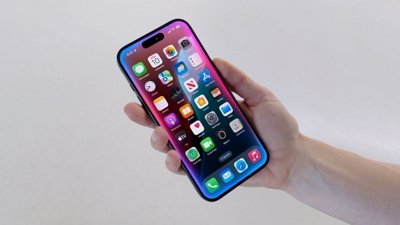
 Malcolm Owen
Malcolm Owen
 William Gallagher
William Gallagher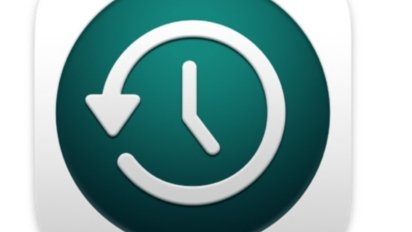
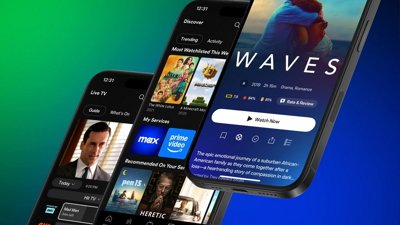
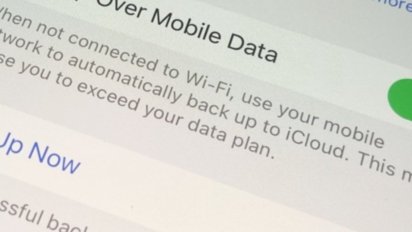
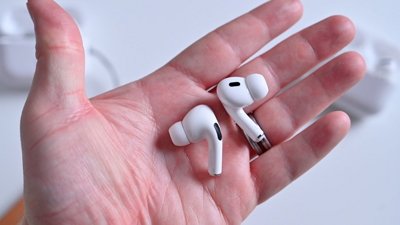

 Andrew O'Hara
Andrew O'Hara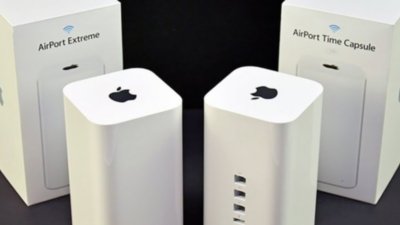
 Chip Loder
Chip Loder

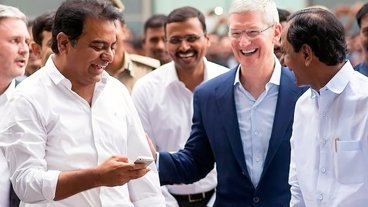







100 Comments
These articles are funny, people are trying to prove the iphone is a failure because of lack of features that they want and do this by spreading fud. I found it interesting that the Blackberry Bold which some say has all the features sold only 4000 units upon launch, and has to pulled due to overheating, but you don't hear the media reporting that they are also failing in Japan due to sales but when it comes to iphone, it's a failure despite selling like 300 000 units +, even though the Japanese mostly purchase phones made by Japanese companies, found that interesting.
That was a very thoughtful article.
Well done.
I think it is unreasonable to even try to understand Japanese market using US standards.
Why has Nokkia withdrawn except Vertu brand? Manipulated news article is trivial.
More than 10 % of Japanese live in the Tokyo metropolitan area and use JR and subways everyday. Not having the train pass and wallet function is a deal breaker to many. Apple computer is not popular there either. Even under such adverse environments, iPhone is doing well. Look back the history of personal computer in Japan. You will see the best (or better) items often failed in Japanese market. Sharp and Fujitsu had kept supplying better CPU but NEC had always won. However, that is not the case with iPhone.
I hate to say that the governmental control of tele-communication business also discourages the use of SoftBank (they are unfairly limiting its access to certain bands.) It reminds me of Apple computer in 80's. Mac was available exclusive through Canon retailer. We were not allowed to open the case. Anyway we did though. So many regulations. I loved Mac but my access was severely compromised. My experiences with 128K, SE, Iici, Classic II, Quadra were fantastic but their support was abysmal. We were minorities then. It seems that time has changed. iPhone is not only for Apple lovers. I am glad to see many friend bought one despite their oath to remain as a slave to MS.
I live in Japan. I don't know how iPhones are selling, but it's not uncommon to see them. What I do know is that Japanese cell phones are terrible. The interface is really confusing. There are times when the center button is "OK," but it could be any of them, depending on what you are doing. And as for buttons, my Softbank phone is bristling with them. There are all kinds of buttons on the side that I never use.
They all seem to be pretty much the same - tons of features, but really complicated to use.
There has been another misleading report on iPhones in Japan. Softbank may be offering them free to Japanese people - but foreigners have to buy them outright!
I hate Wired so much, every article is utter trash with zero basis in reality.